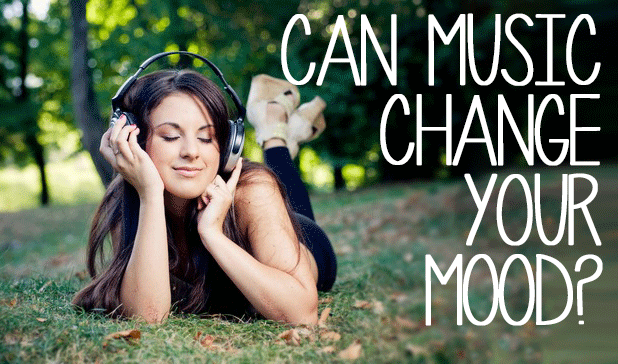Can Music Change Your Mood?
Posted by Simple Girl on 28th Aug 2015

Pssh, can music change your mood. You already know the answer to this, and that's why you listen to angry songs to mask the sadness when your significant other breaks up with you over a text. It's why you can't help but wiggle your body and sing along at the top of your lungs to "Walking on Sunshine," and it's why you used to weep a little in the 80s when 'Til Tuesday's "Voices Carry" came on the radio, or in the 90s when you listened to "Hurt" by Nine Inch Nails. It's why "Eye of the Tiger" is played ad nauseam at sporting events and why classical music on the wi-fi helps you feel relaxed after a long day.
So the question isn't really can music change your mood, but rather how music changes your mood. And we're so glad you asked!
The Human Brain: Wired for Music
Research shows that music is processed in the areas of the brain that control mood and emotions — namely the hippocampus, which brings about emotional responses; the prefrontal cortex, which manages extreme emotions and impulses; and the parietal lobe, which handles spatial orientation and information processing. Because music affects these various regions of the brain, music therapy has been found to be highly effective therapy for everything from helping stroke victims learn to talk again to treating people with anxiety and depression and helping people recovering from addiction better manage their stress and emotions.
Feel-Good Music Floods the Brain with Feel-Good Chemicals
Researchers at the University of Missouri recently conducted a study that confirmed what humans have known viscerally for centuries: listening to upbeat music improves your mood. In the study, participants who were told to improve their mood were unable to do so until they listened to the upbeat strains of Copland.
Music — particularly that of the upbeat variety — fosters the release of chemicals like serotonin, a hormone that gives you a higher sense of happiness and well-being, dopamine, the feel-good neurotransmitter, and norepinephrine, a hormone that makes you feel euphoric.
Songs Sung Blue
When you're feeling down, you may decide that you'd rather listen to music that matches your mood rather than try to improve your mood with music that makes you want to punch it in its upbeat face. Researchers at De Montfort University identified four reasons that explain why we sometimes like to listen to sad music when we're sad:
- We identify with the emotion of the music, which may help us sort out our feelings.
- We relate to the message conveyed through the lyrics and benefit from universal experience.
- We focus better on sad music when we're in a similar state of mind, which can help distract us from our situation.
- We use it to trigger memories, particularly in the case of music that's sad primarily because we associate it with the events or people that are making us sad.
Once the mood passes, however, we tend to turn back to our regularly scheduled program of music that makes us feel good. If we don't, it may be an indication of avoidance or poor psychological adjustment.
Motivating Songs: Aural Inspiration
Why do you think Survivor's "Eye of the Tiger," Gloria Gaynor's "I Will Survive," and Kelly Clarkson's "Stronger" make you walk around with your chest puffed out, feeling invincible whose strength and resolve knows no bounds? It's because music — particularly music that's upbeat and/or contains motivating messages — engages the sympathetic nervous system, which prepares the body to overcome challenges, according to Mark Fenske, an associate professor of neuroscience at the University of Guelph. The heart speeds up, muscles get ready to spring into action, and our attention focuses on the positive aspects of a given task or situation.
If the Shoe Fits...
Don't overthink your musical choices too much, now that you know how it affects your mood. Or don't. Listen to whatever strikes your fancy at any given time. Penn State researchers recently found that students who listened to music, period — whether punk or pop, reggae or rap, classical or country, metal or medieval, or soul or surf — were more optimistic, joyful, calm, and friendly than their crotchety counterparts who didn't.
Translation: Music is good for the soul. But you already knew that, didn't you?

